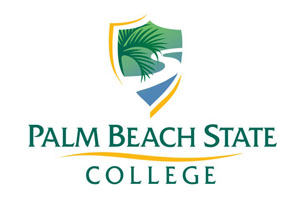Palm Beach State College will begin offering two new bachelor’s degree programs in the fall to give students pursuing careers in human services and respiratory therapy more options to further their education and meet the growing demands of the critical fields.
The Florida Board of Education approved the college’s proposals April 1 to launch a Bachelor of Science in Cardiopulmonary Sciences and a Bachelor of Science in Human Services. The programs will bring the number of bachelor’s degrees offered by the college to five.
“I’m pleased that the Board of Education gave us the green light to move forward. These programs will help us meet the workforce needs of our community and ensure that our students have the skill sets to thrive in their fields,” said PBSC President Ava L. Parker, who presented the proposals at the board’s meeting held via conference call. “We looked at industry data and trends and listened to our business partnership councils that identified this need.”
The Cardiopulmonary Sciences bachelor’s degree will be the first offered at a public institution in South Florida and the third in the Florida College System. It was developed in response to a growing demand for respiratory therapists, which began long before the coronavirus outbreak. It also comes as the respiratory care field is shifting toward more stringent expectations for beginning workers.
In 2018, the American Association for Respiratory Care (AARC) and the Commission on Accreditation for Respiratory Care (CoARC) began requiring all new academic programs applying for accreditation to award a minimum of a baccalaureate degree. PBSC’s bachelor’s degree program will be fully online and primarily target students in the college’s existing Respiratory Care Associate in Science degree program and registered respiratory therapists who want to get their bachelor’s degree.
“We’re preparing them for higher level credentials in addition to leadership management, education and research. We’re giving them more education in order to sit for advanced credentials, specifically adult critical care specialist and neonatal/pediatric specialist. The advanced credentials are from the National Board for Respiratory Care,” said Dr. Nancy Latimer, a professor and department chair for the Respiratory Care program, who developed the bachelor’s program. “With the aging population of baby boomers and a lot of respiratory therapists being in that age group, there’s a big demand for respiratory therapists nationwide.”
In Palm Beach County alone, the demand for registered respiratory therapists is projected to grow by 18 percent or 664 positions by 2026, Latimer said.
The Human Services program creates a pathway for students who complete PBSC’s Human Services Associate in Science degree, which has three tracks: Human Services General, Addictions Studies and Youth Development. Dr. Suzie Duff, professor and department chair for the A.S. program, created the bachelor’s program with Dr. George Stoupas, a professor. She said industry leaders have indicated that many of the current jobs in human services require workers with at least a bachelor’s degree. As the need continues to grow, students in the A.S. program want to continue their education without transferring.
“Each night as we watch the news, we are flooded with stories of pain and suffering in our world from the opioid crisis and mental health conditions to mass shootings and poverty,” Duff said. “Even now with the COVID-19 pandemic, people are struggling with anxiety. Human Services professionals all over the nation help to address these needs by providing resources, assistance and help where it is needed most.”
PBSC trustees approved the programs last May, paving the way for the proposals to go before the state Board of Education. Dr. Don Gladney, interim dean of bachelor’s programs, said the college also must now gain approval from the college’s accrediting body, the Commission on Colleges of the Southern Association of Colleges and Schools.
“The plan is to go after alumni, as well as students who are coming into the pipeline,” Gladney said. “There is some built in demand for people coming out of school with these degrees.”
PBSC, which began offering its first bachelor’s degree in fall 2009, is among 27 of the 28 colleges in the Florida College System that offer bachelor’s degrees. In addition to the new programs, the college offers a Bachelor of Science in Nursing, a Bachelor of Applied Science in Information Management with concentrations in Database Administration, Security & Network Assurance and Project Management, and a Bachelor of Applied Science in Supervision and Management with concentrations in General Management, Health Management, Entrepreneurship and Project Management. Learn more at www.palmbeachstate.edu.








